UNPRECEDENTED POWER:
Jesse Jones, Capitalism and the Common Good
“A must-read for those wanting to learn how a great nation—and a great man—can respond to difficult challenges.”
James A. Baker III
61st US Secretary of State
“Steven Fenberg has given us a wonderful biography of a man who played a critical role in the most tumultuous years of the American Century, bringing Jones back to vivid life.”
Jon Meacham
Pulitzer Prize-winning author and historian
UNPRECEDENTED POWER:
Jesse Jones, Capitalism and the Common Good
“A must-read for those wanting to learn how a great nation—and a great man—can respond to difficult challenges.”
James A. Baker III
61st U.S. Secretary of State
“Steven Fenberg has given us a wonderful biography of a man who played a critical role in the most tumultuous years of the American Century, bringing Jones back to vivid life.”
Jon Meacham
Pulitzer Prize-winning author and historian
Next to the President, no man in the Government and probably in the United States wields greater powers.
Saturday Evening Post, November 30, 1940
Reviews
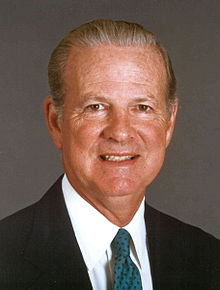


Click above for the full review.


Click above for the full review.

Click above for the full review.

Click above for the full review.



Click above for the full review.
Awards
2017 Houston Chronicle
Houston Reading Challenge Selection
Honorable Mention Award
2013 San Antonio Conservation Society Citation
2012 East Texas Historical Association
Ottis Lock Award
2011 Texas Institute of Letters Carr P. Collins Award for Best Non-Fiction Book
2017 Houston Chronicle
Houston Reading Challenge Selection
2012 East Texas Historical Association
Ottis Lock Award
2011 Texas Institute of Letters Carr P. Collins Award for Best Non-Fiction Book
2013 San Antonio Conservation Society Citation
Honorable Mention Award
In all the U.S. today there is only one man whose power is greater: Franklin Roosevelt.
TIME magazine, January 13, 1941
Articles & Presentations
In a televised broadcast at the Texas Book Festival, Steven Fenberg talks about Unprecedented Power.
CSPAN- Book TV—October 22, 2011
Houston Chronicle reporter Maggie Galehouse describes the importance of Jesse Jones to Houston and the nation.
Houston Chronicle—October 20, 2011
Steven Fenberg describes in an editorial about Unprecedented Power the value of good government.
Houston Chronicle—October 21, 2011
Timothy Massad, who oversaw the Great Recession’s Troubled Asset Relief Program (TARP), introduces Steven Fenberg before his speech to the US Department of the Treasury.
U.S. Department of Treasury—January 10, 2012
He has allocated and loaned more money to various institutions and enterprises than any other man in the history of the world.
Vice-President John Nance Garner, October 31, 1936
Unprecedented Power Quotes
To define Jones’s responsibilities would be to list virtually every organization within the national government. Essentially … it is his job to finance the industrial plant expansion for waging war.
LIFE magazine, October 5, 1942
Jesse Jones
Next to President Franklin Roosevelt Jesse Jones was the most powerful person in the nation throughout the Great Depression and World War II. The Reconstruction Finance Corporation (RFC) under his leadership saved the nation’s banking system and economy and militarized industry in time to win World War II.
Jesse Jones was born in 1874 on his father’s prosperous Tennessee tobacco farm and moved to Houston in 1898 to manage his late uncle M. T. Jones’s estate. Houston’s leaders simultaneously built their businesses and the city’s organizations and infrastructure to enhance life and spur growth in the town of 40,000. They knew they would prosper only if their community thrived.








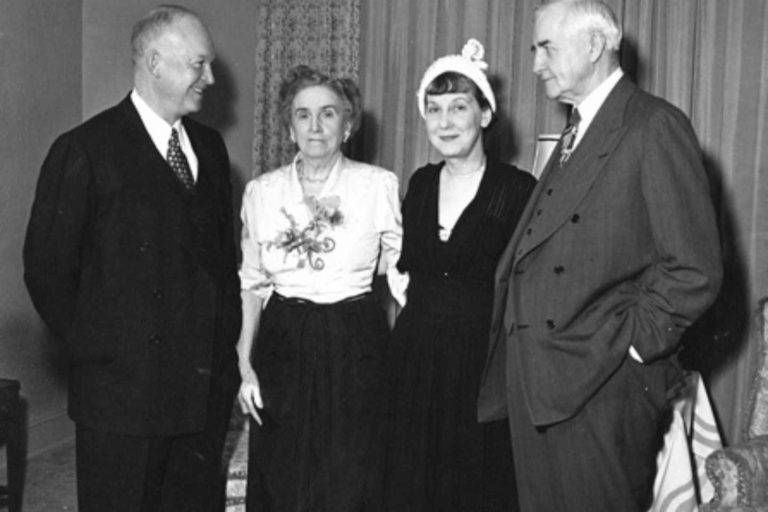
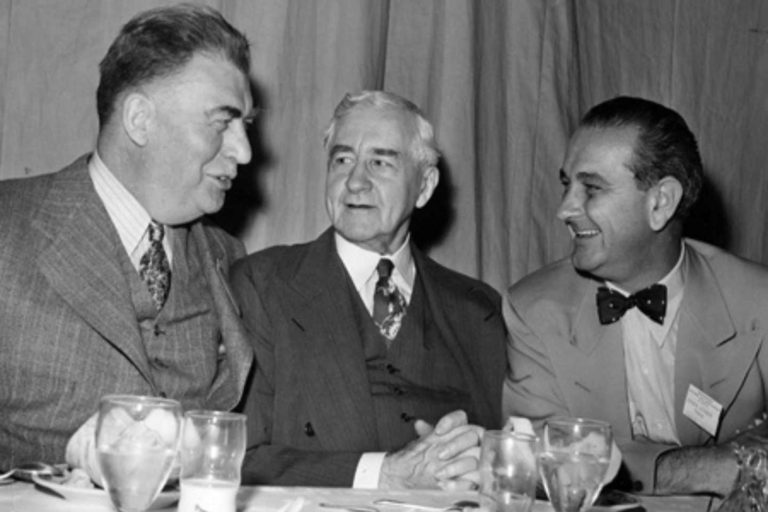
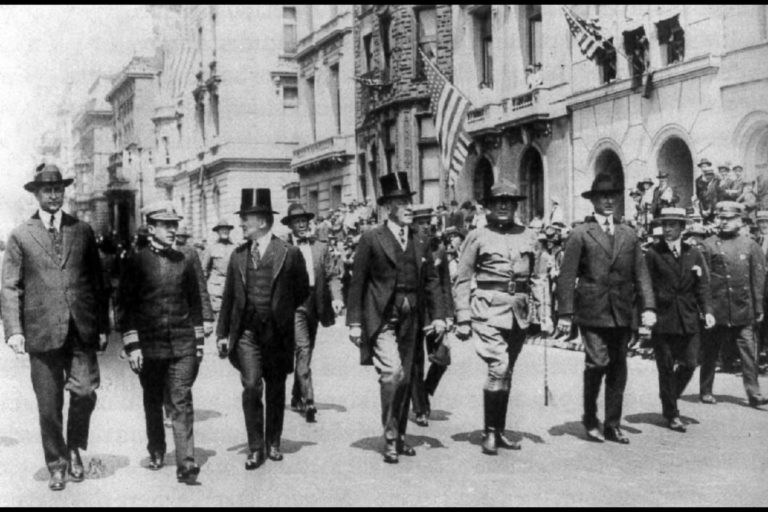
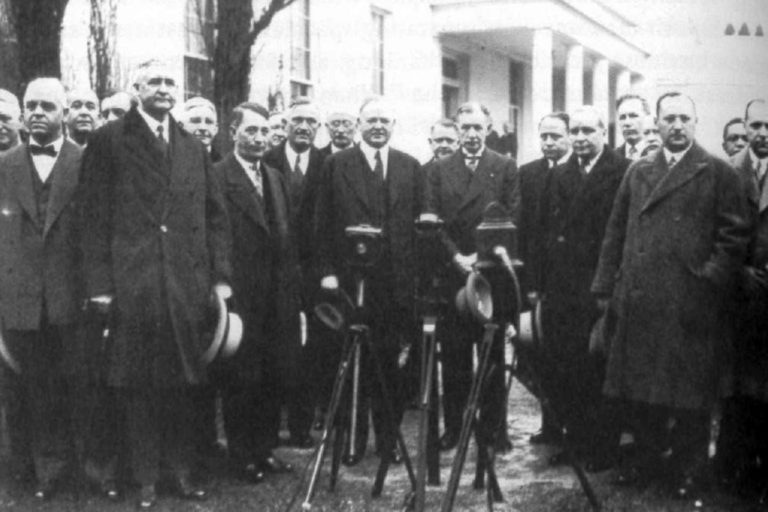
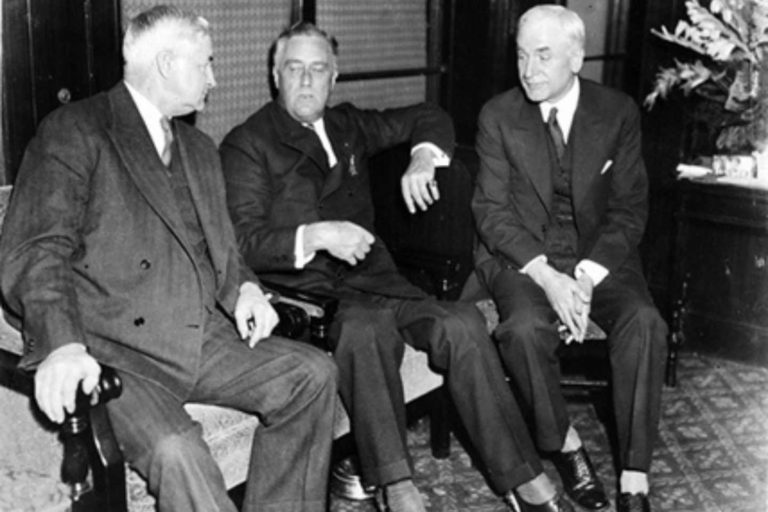
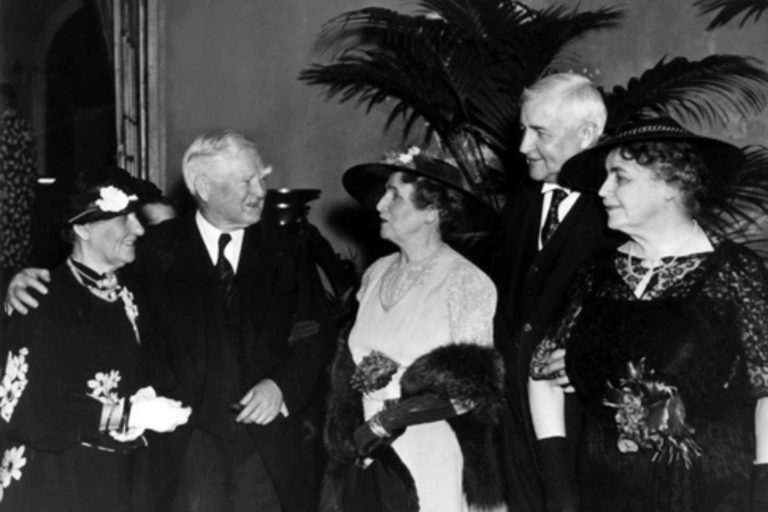
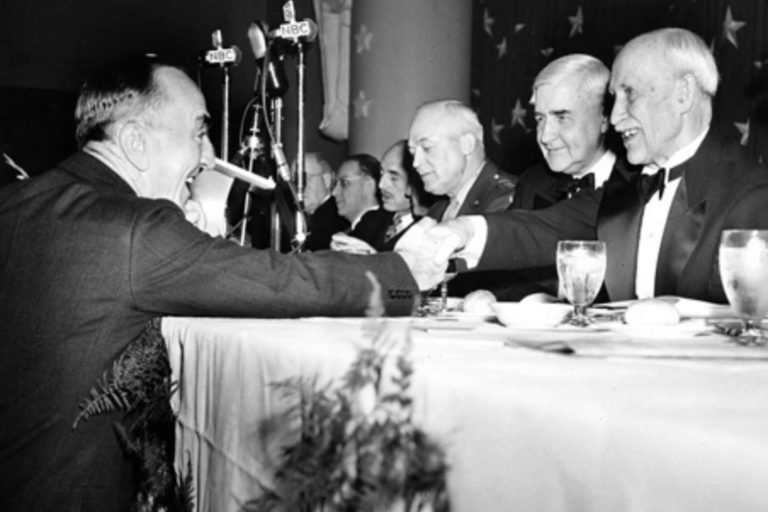
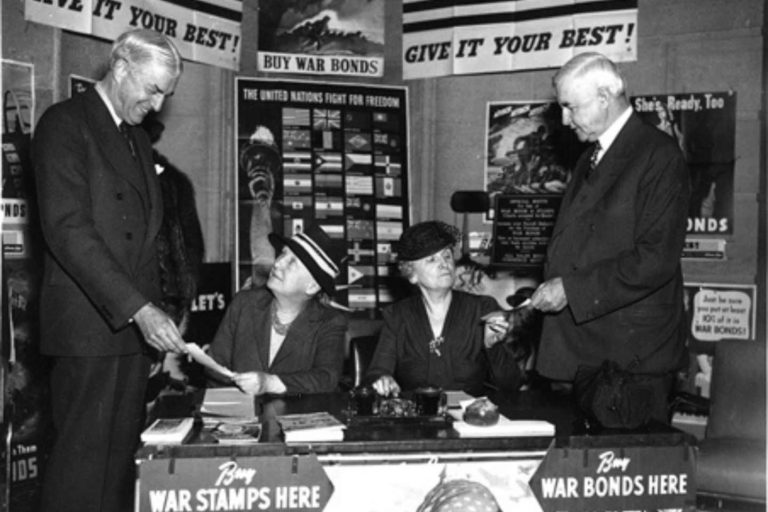
Jesse Jones embraced their combination of capitalism and public service. Within four years of his arrival, Jones started his own lumber business, invested in local banks and developed streets in today’s Midtown where he built and sold small homes on unique long term credit plans. By 1908, he was building Houston’s first skyscrapers, each ten floors tall. As the first chairman of the Houston Harbor Board, he raised funds and orchestrated the construction of piers and warehouses that would welcome ships from around the world to the new Port of Houston when it opened in 1914.
In addition, he organized through the American Red Cross battlefield medical aid in Europe and at home during World War I and became finance chair of the Democratic National Committee before President Herbert Hoover appointed him to the board of the Reconstruction Finance Corporation. President Roosevelt supercharged the RFC and made Jones its chair. After thirteen years of public service Jones and his wife Mary Gibbs Jones returned home from Washington, D.C. where they focused on philanthropy through Houston Endowment, the foundation they established in 1937 to improve life for the people of greater Houston.
Jesse Jones’s leadership of the RFC and his approach to capitalism and public service are models for today.
Don’t ask me what I have done on matters of business … The only person I am going to see within the next 36 hours is Jesse Jones.
President Franklin Roosevelt, July 16, 1933
